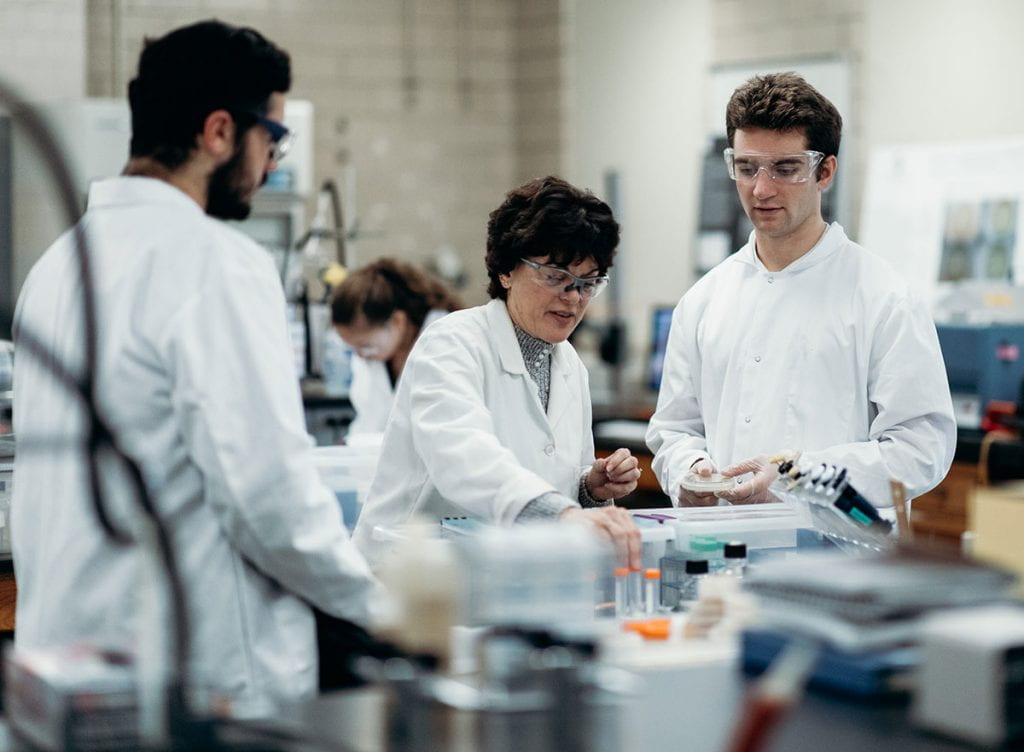A 17-year-old woman from England was cured of a life-threatening, drug-resistant infection after being treated with a virus scooped from the soil at Providence College, isolated and purified by students in a laboratory, and genetically modified by a professor on sabbatical.
It was a worldwide medical breakthrough — the first successful use of a genetically modified virus to treat a drug-resistant infection — and was made possible, in part, by the work of Dr. Kathleen A. Cornely, professor of chemistry, and the students she co-taught in a class with Rev. Nicanor Austriaco, O.P., professor of biology and of theology.
“It was exciting to be part of this phage therapy project and wonderful to know that the patient is doing well,” Cornely said. “We offered the research course at PC in the hope that we might find a phage that could one day treat tuberculosis. To have success so quickly is just amazing.”

In late 2017, Isabelle Holdaway, who lives in Kent, England, and has cystic fibrosis, was dying from an infection after a double lung transplant. Her mother appealed to her doctor at Great Ormond Street Hospital in London to try an approach she read about on the internet — the use of phages, bacteria-killing viruses, to treat drug-resistant infections.
The physician turned to the University of Pittsburgh, where Dr. Graham Hatfull maintains a collection of 15,000 mycobacterial phages, the largest in the world — a collection that includes ZoeJ, a phage collected from soil under a tree near Harkins Hall in September 2012 by R. Seth Pinches ’16. Read More

